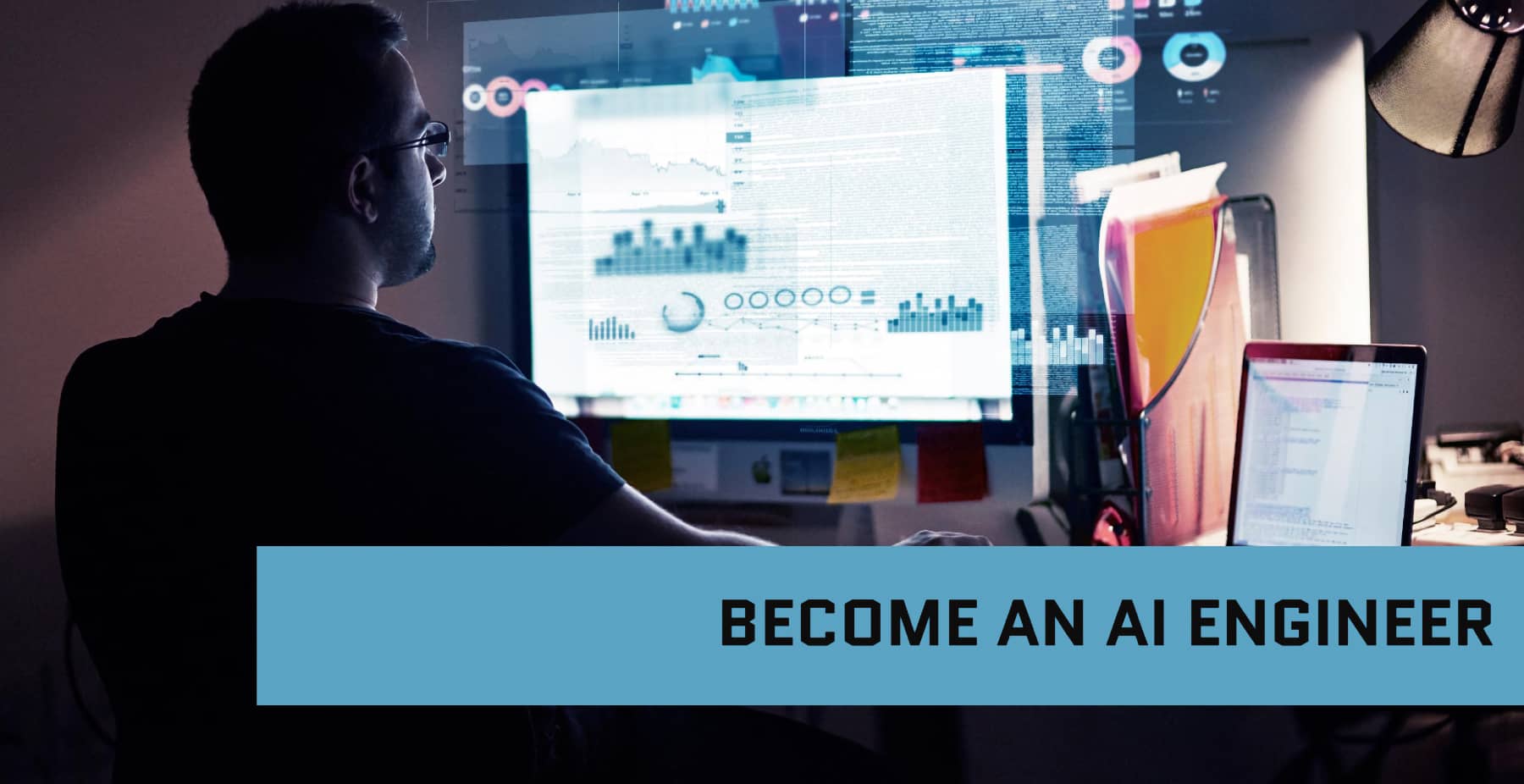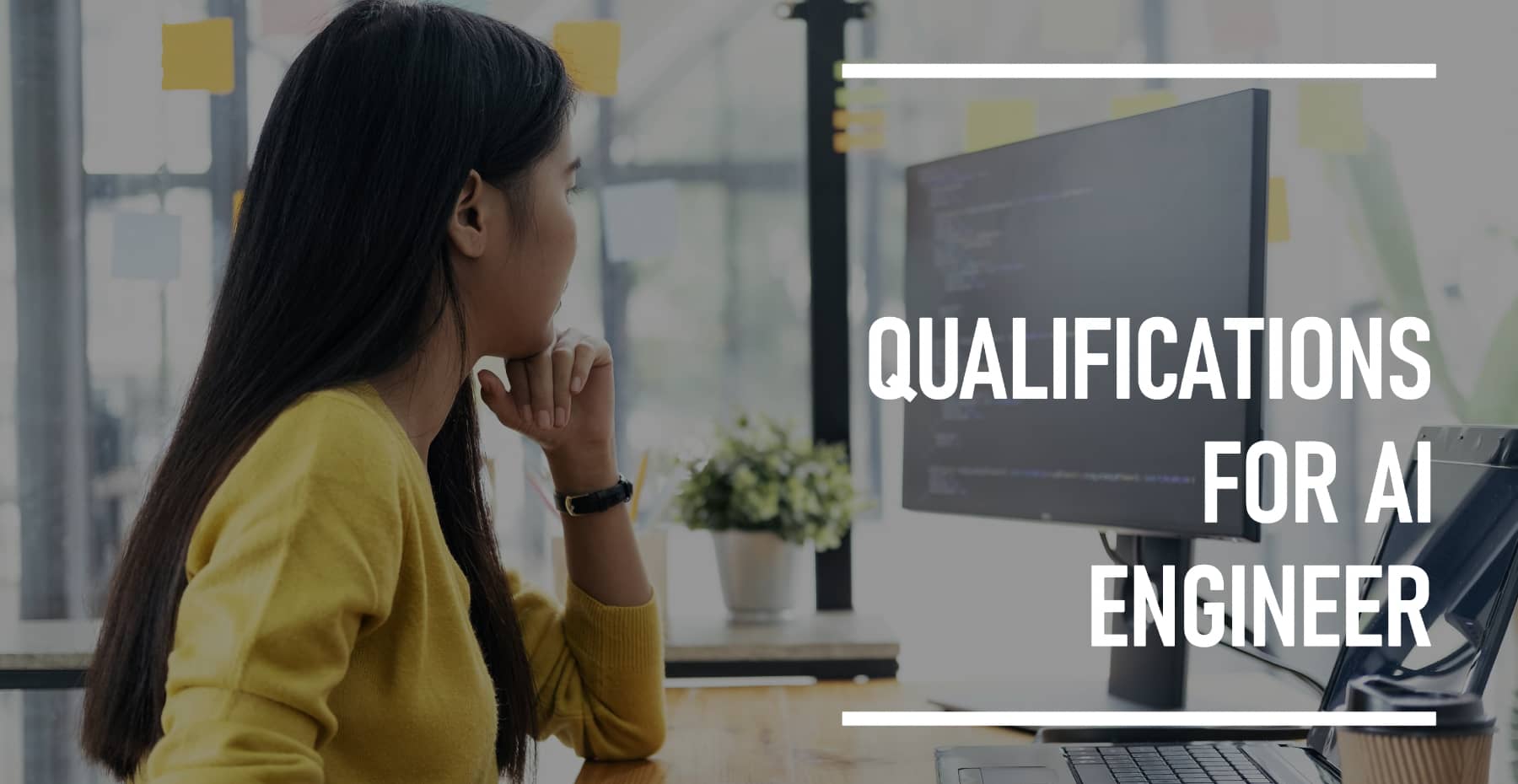Artificial intelligence (AI) engineering is one of the most exciting and in-demand career paths today. As AI continues to transform industries, companies urgently need AI talent to integrate intelligent systems and drive innovation. This comprehensive guide will teach you how to become an AI engineer step-by-step.
The Growing Demand for AI Engineers
The AI market is exploding. According to Statista, worldwide AI market revenues are projected to grow from $327.5 billion in 2022 to over $554 billion by 2024.
With AI being applied across sectors from healthcare to manufacturing, there is an urgent need for AI talent. AI-related jobs are among the fastest growing roles today.
2022 | 2023 | 2024 |
AI Engineer | AI Engineer | AI Engineer |
Machine Learning Engineer | Machine Learning Engineer | Machine Learning Engineer |
Data Scientist | Data Scientist | Data Scientist |
AI-related roles lead fastest growing tech jobs (Source: LinkedIn)

The Solution: How to Become an AI Engineer
An AI engineer applies machine learning (ML) algorithms and deep learning (DL) neural networks to extract business insights and enable intelligent automation.
This guide will teach you the step-by-step process to start your career, including:
Essential technical skills
Building your portfolio
available education pathways
salary and job outlook
What is an AI Engineer?
An artificial intelligence (AI) engineer is responsible for developing AI applications and systems that can automate tasks and enable intelligent decision-making.
Key Responsibilities
Some of the typical responsibilities of an AI engineer include:
Building AI models from scratch using machine learning and deep learning algorithms
Implementing natural language processing (NLP) for speech recognition and text analysis
Image processing to extract information from images and videos
Developing APIs to integrate AI models with other applications
Working closely with stakeholders like data scientists, product managers and business leaders
Performing rigorous testing, monitoring and maintenance of AI systems
Staying updated with the latest advancements in AI and quick adoption
AI engineers build the foundation that allows organizations to unlock intelligent insights and automation from data.
Domain Expertise
Though AI knowledge is essential, domain expertise is equally critical for building impactful solutions tailored to business objectives.
AI engineers collaborate with cross-functional teams across verticals like:
Healthcare
Banking and Finance
Manufacturing
Retail
Government
This amplifies the need for strong analytical and communication competencies.

Essential Skills and Qualifications
Becoming an AI engineer requires a diverse set of technical and soft skills. Let's explore the key competencies needed.
Technical Skills
You need specialized technical knowledge to build, implement and manage AI systems.
Programming Languages
Proficiency in languages like Python, R, Java, and C++ is essential to develop AI models. You should be adept at:
Coding algorithms and statistical models
Manipulating and processing data
Using ML libraries like TensorFlow and PyTorch
Machine Learning and Deep Learning
You need in-depth knowledge of:
Machine learning algorithms like regression, clustering and decision trees
Deep learning techniques including CNNs, RNNs and GANs
ML model building workflows - data pre-processing, training, evaluation and optimization
Data Analysis and Visualization
AI models are powered by data. You should be able to:
Perform exploratory analysis to extract insights
Visualize data to communicate results
Manipulate large, complex datasets using SQL and big data tools
Math and Statistics
A strong grasp over probability, linear algebra and calculus is needed to understand the inner workings of AI algorithms.
Soft Skills
AI engineering also requires certain core competencies:
Problem-solving ability - Finding innovative solutions to vague problems
Communication skills - Conveying complex concepts to diverse teams
Business acumen - Understanding how AI drives impact and ROIs
Teamwork - Collaborating with cross-functional teams
Ethical mindset - Ensuring transparency, privacy and responsible AI
The mix of technical prowess and soft skills is what defines successful AI engineering leaders.
Educational Pathways
There are several routes to gain the prerequisite knowledge for AI engineering:
Formal Education
Bachelors Degree
A bachelors degree lays a strong foundation in areas like:
Computer Science
Information Technology
Software Engineering
Applied Mathematics and Statistics
Some universities also offer specialized undergraduate programs in AI and ML.
Masters Degree
A masters degree allows further specialization in AI. Example focus areas include:
Machine Learning
Deep Learning
Data Science
Computational Statistics
Pursuing higher education in AI is advisable for quickly advancing your career.
Alternative Learning Paths
Coding Bootcamps
Intensive coding bootcamps allow you to obtain job-ready AI skills within months. The focus is on building real-world projects using latest tools and technologies.
Online Courses and Certifications
MOOCs like Coursera, Udacity and edX offer affordable and flexible programs in AI. Topics covered include:
Python Programming
Machine Learning Algorithms
Deep Learning with TensorFlow
Many also provide industry-recognized certifications.
Building a Portfolio
Irrespective of the learning path, gaining practical experience is vital. Working on personal or open source AI projects allows you to demonstrate applied competencies to employers.
You can highlight these in your portfolio along with code samples, models built and techniques used.
Make sure to showcase both depth and breadth of knowledge across AI domains in your portfolio.

Getting Experience and Advancing Your Career
Gaining practical experience is key before transitioning into an AI engineering role. Here are some recommendations:
Internships
Internships allow you to get first-hand experience by working on real-world AI projects under guidance from industry experts. Many companies also provide mentorship and training workshops.
Freelancing & Open-Source
Taking up freelance projects is a great way to build expertise. Contributing to open-source also demonstrates hands-on skills while enabling you to collaborate with developer communities.
AI Competitions (Hackathons/Kaggle)
Participating in hackathons like TechGig Code Gladiators or platforms like Kaggle allows you to solve real-world challenges using AI. This helps validate and showcase your skills.
Career Growth and Salary Prospects
The domain-agnostic nature of AI skills provides tremendous career opportunities across sectors.
As per PayScale, the average salary of an AI Engineer in United States is $114,086 per year. Salaries typically range from $92,000 for entry-level to $156,000 for senior roles.
With global AI adoption accelerating, LinkedIn rates AI-related jobs among the top emerging jobs for 2024. Rapid growth is forecasted over the next decade.
So there could not be a better time to start your AI journey!
Start Your AI Engineering Journey Today
The demand for AI expertise continues rising exponentially across industries. AI engineering merges software engineering, data science and business acumen to build solutions that create impact.
This guide provided a comprehensive overview for becoming an AI engineer, including:
Key responsibilities and required competencies
Essential technical and soft skills
Formal and alternative education pathways
Tips for gaining practical experience
With the unprecedented pace of AI advancement, it is an optimal time to start your AI engineering career. The mix of rewarding work, high pay and abundant opportunities makes this an exciting field to pursue.
Whether you choose higher education, coding bootcamps or online learning, the key is taking the first step by building relevant skills. Experiment with real-world projects, continue honing your abilities, and stay up-to-date with innovations.
As an AI engineer, you will play an integral role in building intelligent systems that revolutionize businesses and enhance lives.


